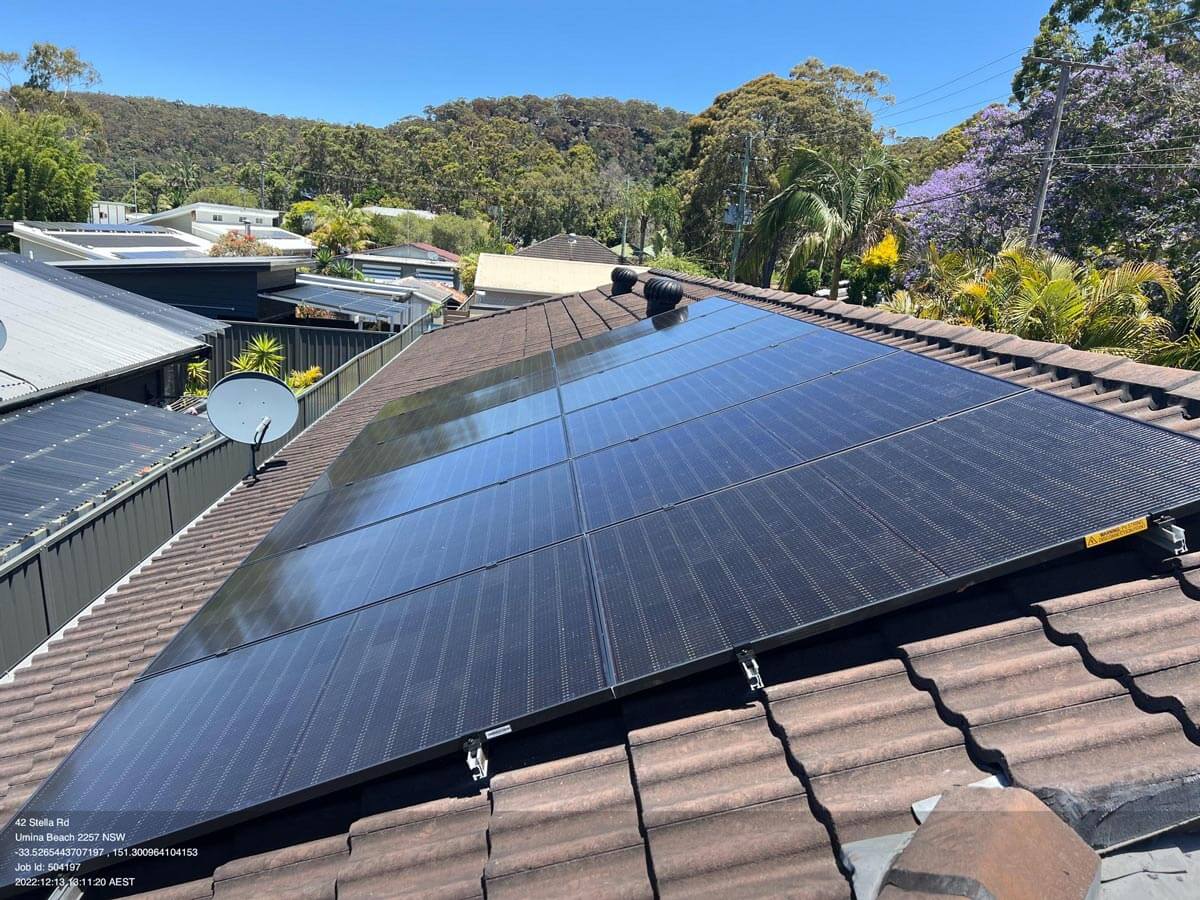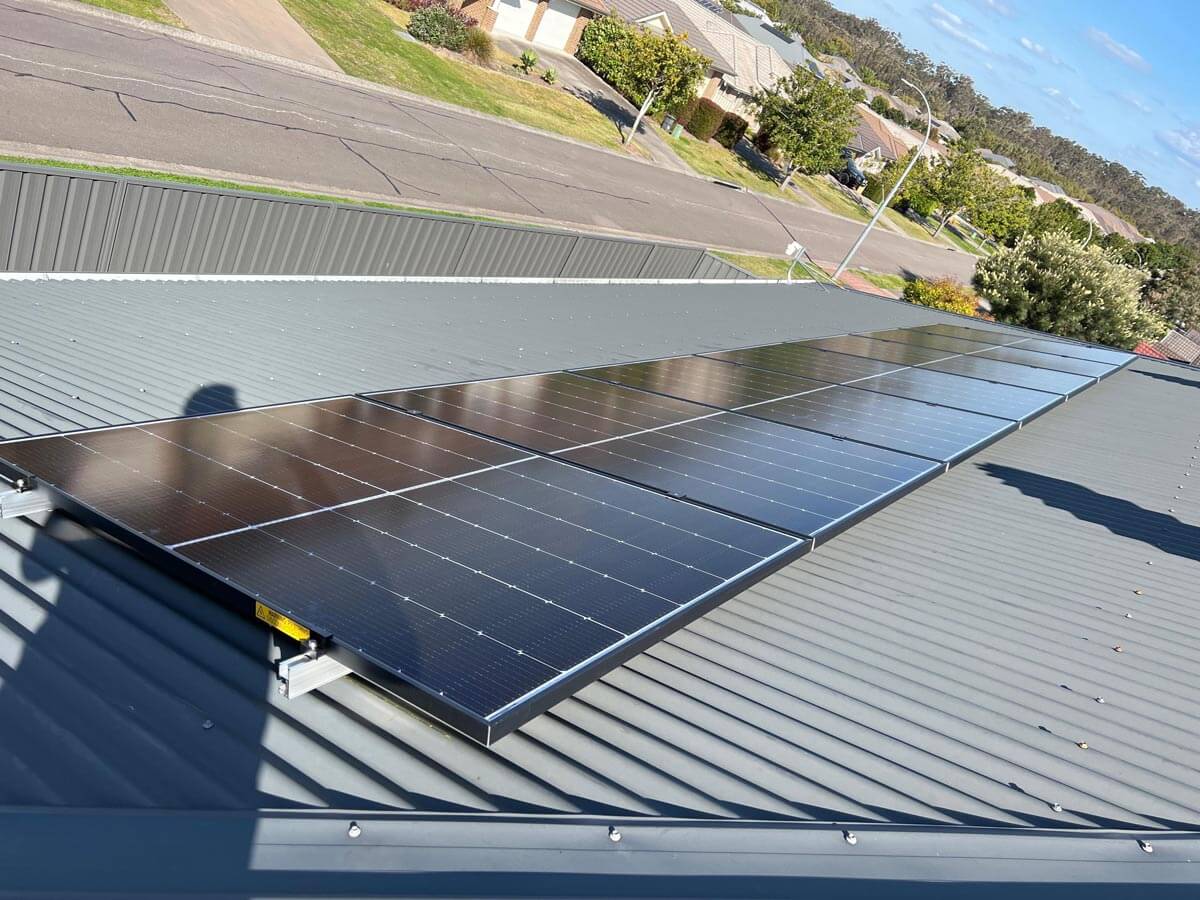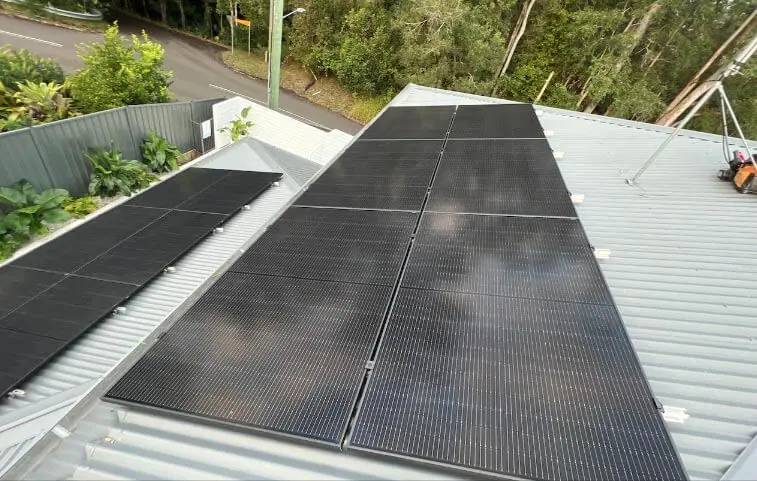Home Cost 3kw Solar System 3kW Solar System with Battery Price
3kW Solar System with Battery Price: New 2024 Guide
Putting your money into a 3kW solar system plus additional battery storage could transform how homeowners slash their electricity charges and reduce their environmental footprint. Choosing a 3kWh setup alongside battery storage is perfect for homes that use between 10 – 12 kWh of power each day.
We’ll walk you through everything you need to know about the cost, benefits, battery size and other factors to consider when choosing a 3kW solar system with battery.
Table of Contents
ToggleShort Summary
- A 3kW solar system typically costs $3,500 – $4,500 and requires 7-8 kWh of storage capacity.
- 7.2kW battery storage costs $9,355.
- Depending on your specific needs a battery might not be a good idea. There is no return on investment. You can save up to 90% off your power bill without a battery. It’s not really worth spending $9,000 + for that extra 10% of savings. See alternative options below.
How much does a 3kW solar system cost?
A 3kW solar system can be a cost-effective way to significantly reduce your electricity bills and reliance on the grid. The cost of a 3kW solar system is $4,108 on average. This varies depending on factors such as location, panel quality, and installation fees.
| 3kw Solar system | $4,108 |
|---|---|
| 7.2kW Solar battery | $9,355 |
| Whole package | $13,463 |
What battery size do I need for a 3kW solar system?

The right battery size you need depends on how much power you use through the day and how much you use at night. A regular residential household will use 30% of it’s power through the day and 70% at night.
For instance, a 3kW hybrid system will produce 10-12kWh per day, so based on that you will need 7 – 8kWh of battery storage ( 10 – 12kW x 70% = 7 – 8kW) to use at night.
It’s worth noting that there’s a general trend towards oversizing your system to future proof your power needs. For example if you decide to get an electric car in the next 10 years, you may what to add some panels to your system. Panels and batteries are modular, so you can easily add to them, but solar inverters are not. Be sure to get an inverter which can handle 50% more power (5kW total) just in case you choose to upgrade in the future.
Battery Storage Options for a 3kW Solar System

Now that we have determined you need 8kWh of battery storage we need to look at a couple of options. There are 3 main choices, each have their pros and cons. They are:
Lead-acid batteries – Like used in regular cars
Lithium-ion batteries – Most common battery type used for solar, mobile phones and EVs
Saltwater batteries – New storage option which are cheaper and than the above and very effective.
The exact number and type of batteries necessary for your solar system should be determined by a qualified solar installer based on your system’s specific requirements and solar output.
3kW solar system with battery price (fully installed)
The average cost of a fully installed 3kW solar battery system in Australia with backup battery is $13,463. This accounts for a 7.2kW Lithium ion redback battery.
Solar panels and inverter: $4,108
7.2kW battery storage: $9,355
14kW battery storage: $12,500
Total package cost: $13,436 (with 7.2kW battery storage)
The price may drop depending on which state you live. Some states have generous battery storage rebates with coils save you up to $6,000 off the price of your battery alone. The above solar panels and invert price is with the solar rebate applied.
Solar battery price per kilowatt
Solar battery prices per kilowatt varies from $850 to $2,000, depending on the brand, type, and location and size. The bigger the battery, the less it costs per Kilowatt.
Installation costs can vary depending on the complexity of the system, the size of the battery, and the type of installation. The cost of the battery itself is usually the largest component of the total cost. GST is also applicable.
Types of Batteries
Suitable battery types for a 3kW solar system include flooded lead-acid (FLA), gel, AGM, lithium-ion, and salt water batteries. Each type of battery has its own advantages and disadvantages, such as cost, efficiency, and maintenance requirements.
When selecting the most suitable battery for your 3kW solar system, you should factor in your budget, the amount of energy requiring storage, and the type of battery that best fits your needs.
Roof space required for a 3kW solar system

The roof space required for a 3kW solar system depends on the number of panels used. A good example would be to use 8 x 390W Q-Cell solar panels.
Panel output: 390W x 8 = 3,120W or 3.1kWh
Panel dimensions: 1.0m width x a 1.7m height = 1.7m2
Roof space: 8 panels x 1.7m2 = 13.6m2
It’s important to note that the solar system output depends on factors such as location, panel efficiency, and weather conditions. For instance, a 3kW system in Sydney may have a different output compared to a 3kW system in Melbourne, which raises the question of how many panels are needed to achieve the desired solar system output.
What is the payback period os a 3kWh solar system?
The payback period for a 3kW solar system also varies based on the quality of the solar panels and the amount of solar power used in the home, with top-quality brands typically offering payback periods between 4 – 5 years.
Is the payback period longer with a battery?
In short, yes, you are going to have a much longer payback period of almost 10 years when you buy a 3kW solar system with a battery. This can be reduced if the state you live is offering a solar battery rebate.
Pricing Factors for a 3kW Solar System with Battery
Several factors affect the pricing of a 3kW solar system with battery, such as the quality and brand of solar panels, as well as the inverter and battery brands. Cheap panels and inverters can be a fire hazard, so be sure to do you research and make sure you are buying top quality equipment.
The quality of the components used in the system will determine how well it performs and how long it will last.
Pro tip: Just because a solar system costs more, doesnt mean they are offering better equipment. There are lots of dodgy operators who jack up prices on cheap chinese rubbish to give the impression of quality. See our solar panel reviews for quality brands
Is it worth getting battery storage with solar?
Investing in battery storage with solar can offer several benefits, such as reduced electricity bills, backup power during power outages, and decreased reliance on the grid. However, it’s important to consider your individual needs and priorities when determining the value of battery storage with solar.
Factors to consider include total electricity usage, electricity costs, the necessity for backup power, and environmental implications.
Disadvantages of storing solar power in batteries
While storing solar power in batteries has its advantages, there are some disadvantages to consider as well. These include a high initial investment, limited capacity, reliance on weather conditions, and a finite storage capacity for excess solar energy.
In addition, the batteries used for this purpose remain expensive and bulky.
Use a feed-in tariff as a free virtual battery
Somthing to consider is to buy a battery in a few years time when they are cheaper. Currently they are just too expensive. A feed-in tariff will save you a stack of money.
How it works is it allows you to feed excess power you are not using through the day to the grid and earn a credit from your electricity retailer. You then draw on that power at night at a markup. Yes the power company will make a profit on sending your own electricity back to you, but using this method you will still reduce your power bill by 85 – 90%. Is it worth paying $9,000 + for that last 10% savings?
Pro tip: Over size your system to a 4kW system. You will send more surpless electricity to your power supplier than you use at night bridging that last 10% gap to a $0 power bill.
Financial Benefits and Payback Period
The payback period of a 3kW system is 4 years on average. If you add a battery, they will blow out to 10 + years.
In my opinion, a solar battery is not worth it at this stage. Maybe in 2 – 5 years batteries will be much cheaper and worth the investment. The life span on Lithium-ion batteries is about 10 years, so you will need to buy a new one when you are done pay it off, which kind of defeats the purpose of going solar in the first place.
Estimating Savings on Electricity Bills
On average most homeowners save an average of $124 per month or $1,478 per year off their power bill just with solar panels and inverter. With a battery, you can save an extra $168 – $198 per year.
| Monthly saving | Yearly saving | |
|---|---|---|
| 3kW solar system | $124 | $1,478 |
| Battery backup | $14 | $168 |
| Whole package | $138 | $1,646 |
Calculating Payback Period
To calculate the payback period for a 3kW solar system with battery, you need to divide the initial investment cost by the yearly energy savings. Maximizing the solar energy generated daily is recommended in order to achieve positive monthly cash flows, resulting in savings that exceed the cost of financing the system.
To maximize the savings, it is important to consider the size of the system, the type of battery, and the location of the solar panels. Additionally, the cost of financing the system should be taken into account when calculating the payback period.
FAQ's
The expected lifespan of a 3kW solar battery can vary between 5-15 years, depending on factors such as battery chemistry, usage cycles, temperature, and routine maintenance.
It’s important to keep these factors in mind when selecting a solar battery for your 3kW solar system.
Yes, it is possible to add a solar battery to an existing solar system. However, some rewiring of the solar panels may be required, and the existing inverter may not be suitable.
When considering adding a solar battery to your existing solar system, consult a professional solar installer to ensure compatibility and proper installation.
Based on commonly accepted electricity use patterns with residential users, you will need to store about 8kWh of power for use at night. Once the battery is full and all your power needs are met, excess power will be fed into the grid where you will receive a feed-in tariff.
Yes, a 3kW solar system is worth the investment. It’s an excellent choice for most small- to medium-sized homes, producing enough power to cover your energy needs. Plus, you’ll be saving on your electricity bills and helping to reduce your carbon footprint.
A 3kW solar system is powerful enough to run most of your home appliances, including your fridge, air conditioner, TV and light bulbs. Depending on the amount of energy each appliance uses, you should be able to cover the majority of your home’s power needs with this system.
It is important to note that the size of the solar system you need will depend on the amount of energy your home uses. If you have a larger home or use more energy, you may need a larger system. Additionally, you may also want to reconsider.
Compare Solar Panel Quotes
Table of Contents
Toggle









